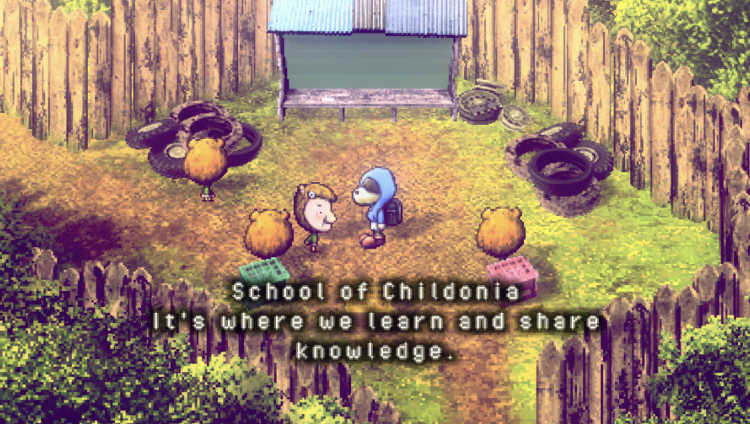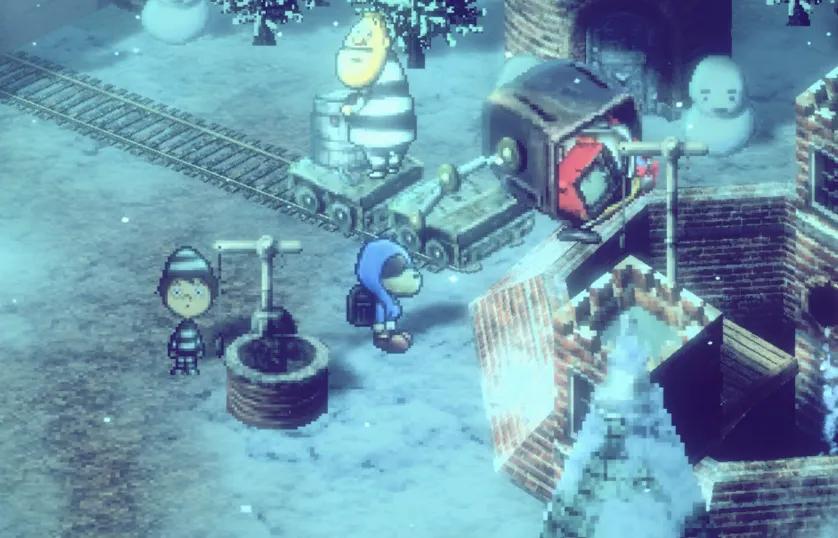Stray Children'ın İngilizce Sürümü, Onion Games'in Masalsı RPG'sini Küresel Oyuncularla Buluşturuyor
Stray Children has entered the English-speaking market with a tone that feels uncomfortably close to reality, even beneath its fantastical elements. Onion Games, the studio behind Moon: Remix RPG Adventure, frames childhood as less a soft-focus memory than a battleground where innocence and imagination clash with the weight of adult insecurity. The result is a game that treats youth not as a nostalgic refuge, but as a charged space where the emotional failures of grown-ups take grotesque form and demand to be confronted.
The premise is blunt. Children inhabit a fortified haven. Beyond its borders roam adults, described here as Olders, who carry resentment, doubt, and regret as if it were visible and weaponized. Combat follows that emotional logic rather than physical force. Talking becomes a primary tool, not in the shallow social-simulation sense but in pointed, needling exchanges designed to crack the psyche of towering, volatile figures. The approach recalls Undertale, though Stray Children avoids feeling derivative. The world has a specific strangeness: treehouses perched over rivers, submarine travel, oddities like Icicle Bullets of Love. It moves with the inventive unpredictability that helped define Onion’s earlier work.
The battle system blends turn-based commands with bullet-hell dodging, a structure that already carries strong emotional weight in games tied to confrontation and empathy. Here, the bullets are metaphors: squealing piglets streaking across the screen, bursts of what reads as bottled frustration, attacks shaped less like weapons and more like tantrums and disappointments. The game encourages players to withstand this barrage long enough to discover what drives each opponent. As the Steam page puts it:
“Deftly dodge the relentless barrage of their bottled-up emotions, and discover the source of their strange stories.”
Victory is rarely about overpowering an enemy. It is about saying the right thing at the right moment, then holding firm as the next emotional storm breaks.

There is humor in the premise, though it carries a sharp edge. Taunts such as “Do you remember having hair?” land with a smirk, but the broader message cuts deeper. Adults in Stray Children are not villains in the cartoon sense. They are broken figures weighted by unmet expectations and internal discomfort. Children confront them not to destroy, but to expose the roots of their behavior. The game’s request that players never spoil the ending reinforces the sense that revelation, rather than conquest, is the goal.
The team behind Stray Children gives this release particular weight for anyone who grew up with classic RPGs. Director Yoshiro Kimura has credits including Romancing SaGa 2 and Rule of Rose, a game still remembered for its unsettling atmosphere and exploration of cruelty and vulnerability. Art director Kurashima Kazuyuki contributed to Live A Live and Super Mario RPG, while composer Hirofumi Taniguchi worked on Suikoden and Contra: Hard Corps. That lineage matters not as nostalgia bait, but as a sign that the game arrives from developers accustomed to risk, scale, and emotional specificity. Their collective history does not overshadow the work; it helps explain the confidence visible in its tone and mechanics.
Early community responses range from playful to earnest. Steam users joke about the game as “Undertale but heterosexual,” though one self-described bug tester urges players not to force comparisons to Moon or Toby Fox’s cult classic. The comparison will persist regardless. Indie RPGs that center pacifism, emotional strategy, and surreal worlds will always be read against Undertale. Stray Children accepts that conversation and moves past it. The game does not mimic; it interrogates. It draws from a lineage of titles that are less interested in power fantasies than in vulnerability and the strange, volatile power of empathy when rules fray and emotions escalate.
The reluctance to discuss the ending, requested directly by the developers, hints at a narrative turn that relies on surprise and reflection rather than shock. Onion Games and its creative leads have a history of subverting genre rhythms. That alone places Stray Children in the category of releases worth following even beyond the initial launch window. It may not attract a broad mainstream audience, but its perspective carries its own gravity.
The studio’s plea is simple: play, observe, interpret, then hold the secret. Games often chase visibility. Here, discretion becomes part of the experience. Stray Children arrives not as a spectacle but as a quiet challenge to storytelling expectations, a reminder that fantasy can sting a little and that childhood, revisited honestly, rarely feels soft.

Yorum